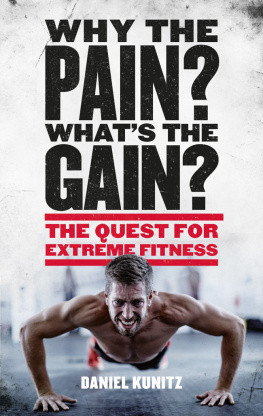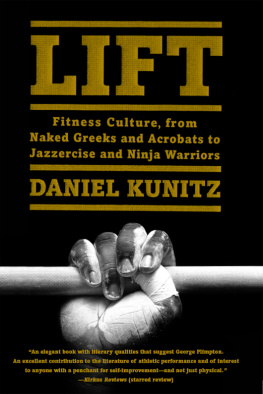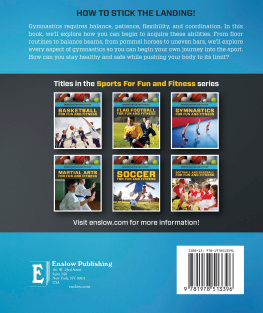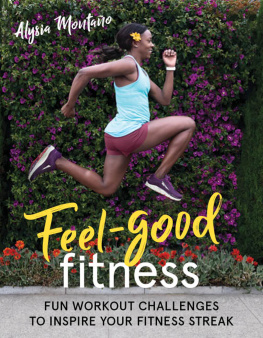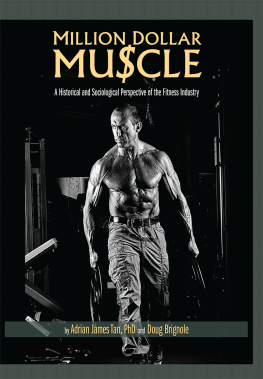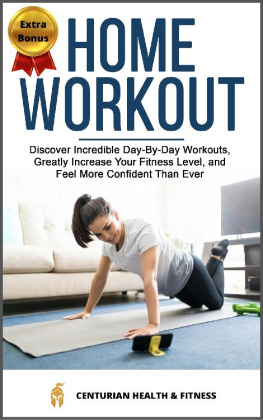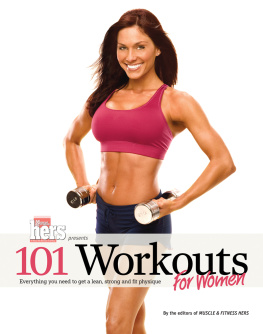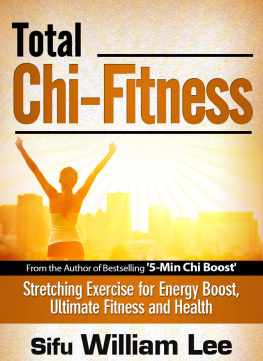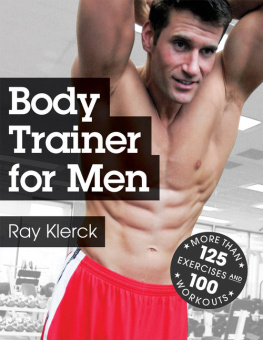I t is the young who most reliably bring news of the future. Todays flash comes from my cousin Juliet, who has just entered the eighth grade. I dont know her well, or any other girls her age, but to my untutored eye she seems a bit taller than average, thin though not skinny, with shoulder-length brown hair. She is girlish, even ladylike, and not particularly known in our family as big on sports. This makes it all the more astonishing when, while sitting around a pool with some other cousins of a similar age, Juliet announces that she has joined the womens weightlifting team at her school.
That is newsnot so much of Juliet but of all womankind. When else in human history but now could her casual statement be possible, or even imaginable? Since when have women been encouraged to lift heavy weights, to form a team of weightlifters?
Her announcement does not, however, faze the boys shes speaking with. All within a few years of her, not one finds it odd or surprising when Juliet nonchalantly explains that she and a friend joined the team because we wanted to start a new sport that would make us stronger.
A generation earlier, when I was her ageand, whats more, for every generation preceding hers down to the beginning of timea girl wanting to get stronger would have provoked snorts of disapproval, mockery, often disgust. Young women were not supposed to want muscles; were not to bother with being strong: such desires were deemed unfeminine. And for a girl entering her self-conscious teens, like Juliet, it would have been especially unlikely. There might have been some boys in my junior high school who wished to pump themselves up into musclemen like Arnold Schwarzenegger and Sylvester Stallones Rambo, but as far as I recall we had no weight room. And while the majority of girls at my school may have hoped to get as skinny as Jane Fonda in one of her workout videos, they were far more likely to do it with cigarettes, Diet Coke, and fasting than with aerobics. Besides, lifting was considered dangerous for kids that agejust one of the many things that could supposedly stunt your growth.
But in the autumn of 2013, the male cousins around the poolreedy, pale, and more taken with coding than athleticsfind it perfectly normal for a girl to do strength sports, as does the girl herself. Without realizing it, these kids are denizens of a world that has begun reconceiving the very idea of fitness; they inhabit a New Frontier that a handful of adventurers began exploring about fifteen years ago, just before the turn of the millennium. And two of the key features of this territory that these adventurers have inadvertently pointed out are the prominence of women and the acceptance of strength training.
G irls hoisting heavy weights above their heads; women with muscles; girls who are stronger than many boys: these are some of the last remaining female cultural taboos. They persist in the East as well as in the West. Yet these taboos are being rapidly broken down.
Nowhere is this more apparent than in the sport Juliet adopted, though it is still largely unknown by the American public. In Europe and Asia, where it is a hugely popular, teenage boys and girls will know exactly what is meant by the word weightlifting. It is emphatically not bodybuilding, which is what comes to most of our minds when we hear the clank of iron; it does not entail the most common lift seen in gyms, the bench press; nor does it have anything to do with hoisting enormous stones or pulling airliners with your teeth. Weightlifting consists of the two barbell events included in the Olympic Games (and because of this it is also known as Olympic lifting): the snatch and the clean-and-jerk.
The clean-and-jerk combines two basic and entirely common human movements: the clean, in which you pull a weighted bar from the floor to your shoulders; and the jerk, which powers the bar from the shoulders to a locked-arm position over your head. The snatch is more complex: with a very wide grip on the weighted bar, you heave it in one swift motion from the ground to overhead. While the Oly lifts, as they are known, might sound brutish and scary to the uninitiated, they are in fact as graceful as dance, demanding agility, flexibility, and speed as much as strength. They are also highly technical, requiring years of practice even to approach competence. Their subtlety adds to the obsessional nature of the lifts. I envied Juliet for getting such an early start, and after I told them about her, so did the women with whom I train.
I didnt try the Olympic lifts until my thirties, and like many people in recent years, my introduction came through CrossFit. During high school and college I did no systematic exercise, and in fact I dont recall anyone ever suggesting that doing so might be beneficial. I participated in no team sports in school, either. I was an avid skier, over the fifteen-odd days a year that skiing was possible for a kid growing up in suburban Maryland. And on occasion Id play tennis, go hiking, or ride my bicycleall of which I continued to do after college, when I moved to New York and began working as an editor at The Paris Review, a literary magazine that George Plimpton had founded with several others in 1953.
It was at The Paris Review that I became alienated from my physical existence, and where we became reacquainted. At our worst, my cohorts and I at the magazine emulated the wasted waif aesthetic of the time, the nineties, and gave no thought to improving or maintaining ourselves physically. We thought of ourselves as living the life of the mind. At our best, we emulated George, who, I now see, was an exemplar of a mid-twentieth-century ideal of vigorous masculinity. He was athletic enough for journalistic stunts like playing quarterback for the Detroit Lions, boxing against Archie Moore, standing in as goalie in a hockey game, and taking a few turns on a circus trapeze, all of which he recounted in brilliantly hilarious books. His was an ethos of playof recreation rather than training. And so he maintained a strong tennis game well into his sixties; he liked bird watching; he never took a taxi or the subway (let alone drove a car) when he could bike instead. But running or lifting weights, anything that might unduly spike the heart rate or tax the muscles, was out of the question: they would have interfered with the nightly revelry. The most charming of men, George was world-famous as a host. Planeloads of people flew in from every part of the globe for the parties he threw several times a week. And when George wasnt hosting, wethe handful of us, all in our twenties, who worked at The Paris Reviewfollowed him like a column of ducklings out into the Manhattan night, to book parties, benefit galas, random birthday parties, intimate soirees, movie premieres, or just to a bar to get sloshed. To a kid from the suburbs, and even to the metropolitan sophisticates among us, who had gone from Park Avenue to Harvard before returning to the city, our life was impossibly glamorous and exciting. We spent our nights seeded among the beau monde of famous writers, actors, TV personalities, politicians, and socialites. And with them we poured gallons of scotch down our gullets; we snorted drugs; we smoked cigarettes and pot. George, however, was not just some empty bon vivant. In fact, he had an ingrained Protestant work ethic: no matter how deep into the night he dove, he always surfaced on cue, waking each morning to put in a full day of writing and editing.

